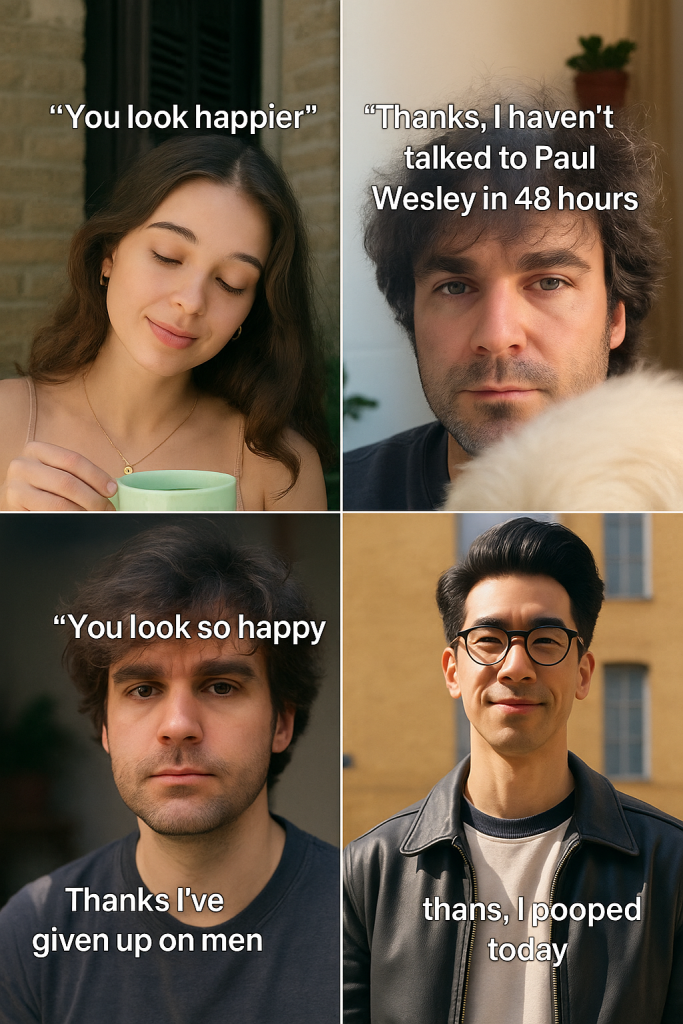The latest viral sensation on TikTok, the “you look happier” trend, has sparked a wave of funny, ironic, and sometimes downright awkward user experiences — shining a light on the complicated relationship between appearance and emotion in a refreshingly humorous way.
Emerging in early 2024, the “you look happier” trend involves TikTokers responding to comments or situations where someone points out they look visibly more cheerful or upbeat than before. While the phrase might seem flattering on the surface, many creators have taken the opportunity to share their quirky, unexpected, or even ironic encounters with this common observation.
“People tell me, ‘You look happier,’ as if it’s obvious I spent the last week binge-watching sad movies and living on cheese puffs,” one TikToker joked, capturing the trend’s essence of undercutting superficial compliments with honesty. These lighthearted responses resonate widely because they poke fun at the universal experience of hiding complex feelings behind a simple smile.
Many users have uploaded videos illustrating how the comment can carry a double-edged meaning: a perceived judgment on one’s emotional state or an unintended trigger for self-reflection. Some TikTokers theatrically portray exaggerated versions of themselves reacting sarcastically to “you look happier” comments — from mock enthusiasm to playful eye-rolls — highlighting how awkward it can feel when someone tries to read your mood based on your looks alone.
Others have turned the trend into a creative challenge. One popular variation shows a split-screen, with the left side depicting their usual gloomy or tired demeanor, and the right side displaying a forced or “Instagram-perfect” smile. This visual contrast cleverly underscores how social media often pressures individuals to appear perpetually happy, even when that’s far from reality.
What’s driving the trend? Experts suggest that in a world increasingly dominated by digital interactions, people are seeking ways to connect on a more genuine level. The “you look happier” trend, while playful, taps into a deeper cultural conversation about mental health, emotional authenticity, and the masks we wear online.
Interestingly, some TikTok creators have used the trend to share positive transformations and triumphs over adversity, juxtaposing humorous commentary with sincere stories of personal growth and healing. These posts have helped create a supportive atmosphere where humor and vulnerability coexist, adding another layer to the trend’s appeal.
However, the responses aren’t always light. A number of TikTokers express frustration at being told they “look happier” when they don’t feel that way, revealing how such comments can sometimes feel dismissive or invalidating. This has sparked insightful discussions in comments and duets, emphasizing the importance of asking and listening rather than making assumptions about someone’s emotional state.
As April 2024 unfolds, the “you look happier” trend continues to evolve — becoming more than just a viral meme or challenge. It’s a clever social commentary, wrapped in humor and wit, that invites users to laugh at the awkwardness of human interaction while also reminding us of the complexity beneath every smile.
For those scrolling through TikTok’s endless stream of content, these videos offer a refreshing blend of comedy and candor — encouraging viewers to think twice before making snap judgments about how someone truly feels, and perhaps to approach others with a little more empathy and care.



